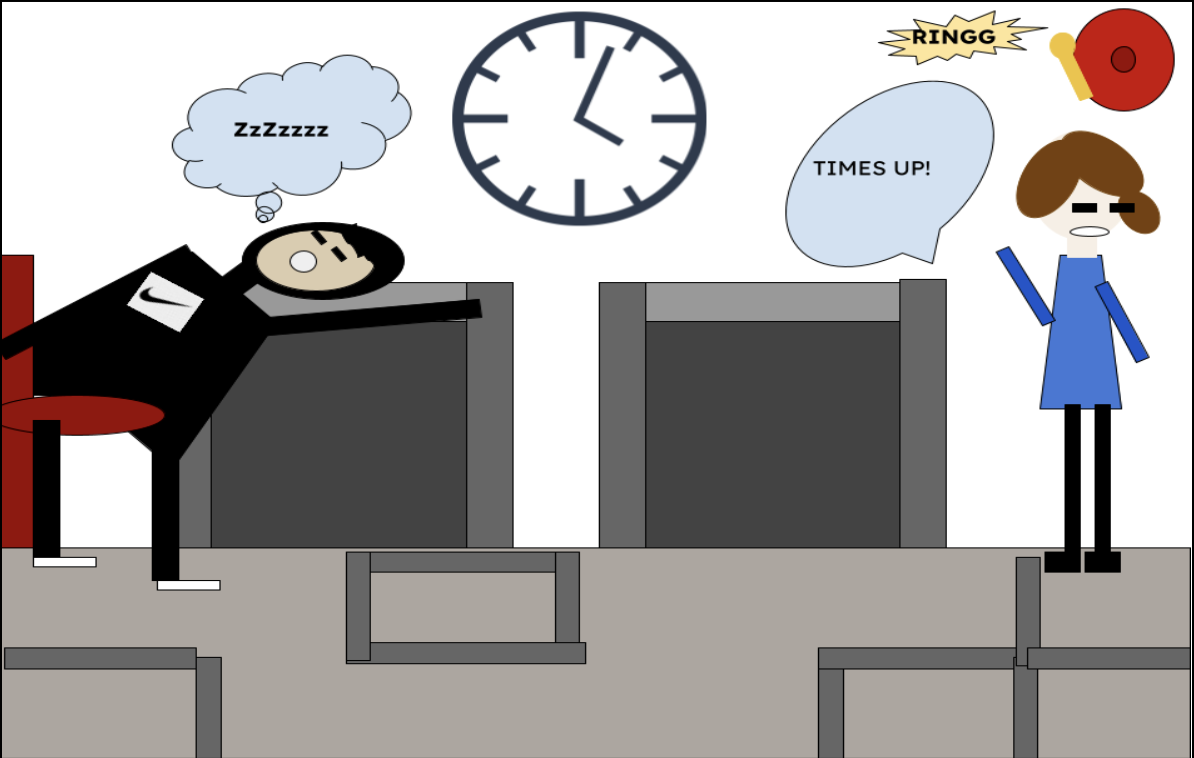Here at Edison High, students attend classes from 7:40 a.m. until 2:30 a.m. Student performances change throughout the day, and teachers seem to notice a difference.
In classes, teachers try to engage and gather the attention of students, but it may be harder to do so early in the morning. Afternoon classes are affected by breaks throughout the day such as study hall or physical education and lunch.
“There’s almost a ‘zone’ in the middle of the day when students are most attentive,” History Teacher Mr. Steven Sharp said, noticing a difference in students’ behavior.
Students also portray different characteristics and a great amount of inability to learn well in the morning. But, teachers believe students are more quiet and less likely to disrupt the class.
“My period two class is definitely not duds, but I often wonder if I am too much for them,” English and Journalism teacher Mrs. Diane Frey states. In other words, she notices a change in students’ moods and habits. As a morning person, Freyis best working and has the most energy to teach students.
Various states including New Jersey have tried to enforce a bill requiring schools to open later than 7:40 a.m. and more so at 8:30 a.m. Already, in a leading example, California has high schoolers attending school at later times. State lawmakers are aware of the sleep deprivation that high school students have waking up earlier than other grade levels.
The time to depart is generally 6:40 a.m., and most students have to wake up at 5 a.m. to attend school on time. This time deficit gives students less time to rest a complete eight hours, the minimum amount of time to sleep for healthy teenagers.
Research implies that a student’s mental health also is affected by the circumstances, showing the effect of a lack of sleep.
“You try so hard in the morning to get tired in the afternoon,” Sky Simmons ‘27 said about morning classes.
Student focus and mentality change throughout the day, and it is notable by the afternoon.
“Learning at different times does change my focus because in the morning I’m more quiet and less interactive, but during the afternoon I’m louder, more excited and energized,” Samantha Brea ‘27 said.
Students seem to notice a change in their behavior almost immediately during lunch or during classes where distractions are common. This observation suggests that these disadvantages most likely happen when they are distracted, tired, and unable to focus.
Teachers notice that students have their “moments” during the morning. Student’s emotions and mood changes can affect their learning and their academic performance.
“After lunch, management becomes more of an issue,” Frey claimed.
The best that any person can do is to motivate themselves and sleep well for a better day and reaction; this underscores that students and teachers should have normal times to wake up and to rest for a better night’s sleep. Doing so improves performance during classes, establishing a system that can last you the rest of high school.
Mr. Charles Ross, EHS school principal, notices that students may not have enough energy in the morning, so he schedules morning announcements to be attentive, loud and stimulating enough for students to wake up in the morning.
Ross’s phrase, “You can’t hide that eagle pride,” means that students need to have energy to attend school and be the best they can be as a student and individual at Edison High. Ross reminds us that the ability to focus your best in your classes and have the same behavior for every class is what you need to succeed in your studies and the real world.
Learning in the morning or afternoon can affect your mindset, mood, and ability to process in many different ways, from little things like paying attention to sleeping during a test; but, it all shows that students need more time for rest and need to be motivated well to be the best they can be throughout the school day.

















































































